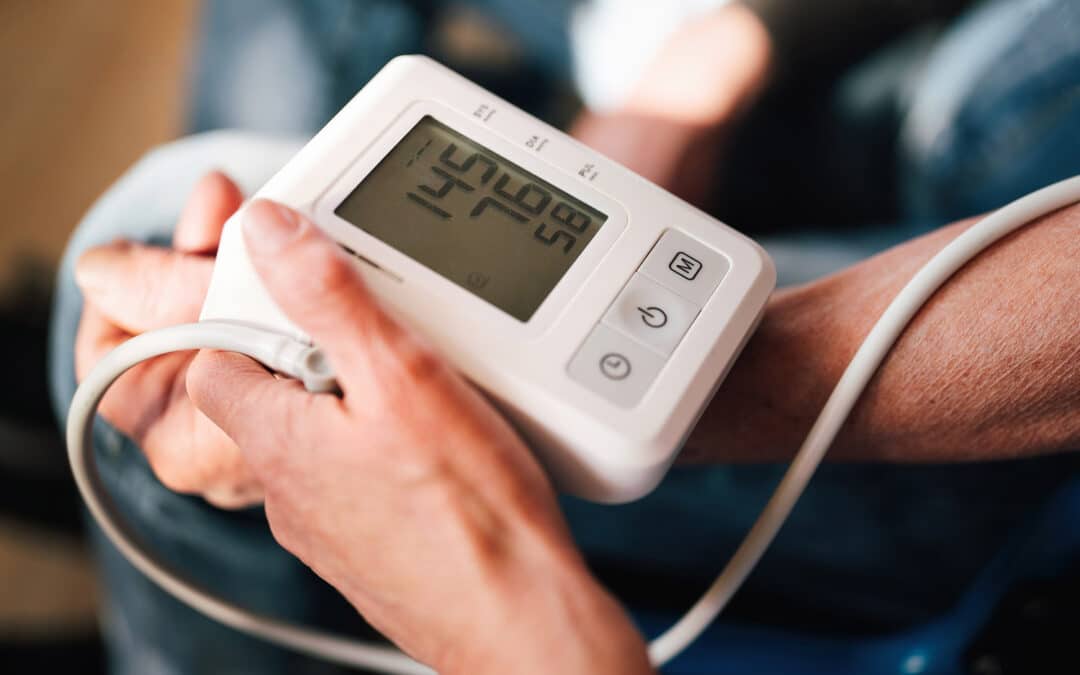What Is Congestive Heart Failure?
Congestive heart failure happens when your heart is unable to pump blood as well as it should.
A healthy heart pumps blood throughout the body, delivering oxygen and nutrients.
With congestive heart failure, the heart is no longer delivering the normal amount of the blood it should.
There are two main causes why the heart cannot deliver blood:
- The heart muscle is too weak to squeeze the blood out of the heart.
- The heart muscle is too stiff, so it will not relax enough to let blood fill the heart. Sometimes, patients can have both problems.
As the body senses it is not getting enough blood flow, body chemicals (otherwise known as hormones) are sent to the heart to make it bigger and work faster. However, over time these changes, actually hurt the heart and make the heart larger and thinner.
As the heart grows and works faster, the overall weakness and stiffness can get worse. Heart failure is known as a progressive disease, meaning it often gets worse over time.
Sometimes the blanket term “heart disease” is used to describe multiple heart conditions including congestive heart failure, coronary artery disease, and other heart conditions.
How Common is Heart Failure?
Heart failure is a common condition. About 6.5 million Americans have heart failure and that number is expected to rise dramatically in the next decade as the population gets older. The lifetime risk of getting heart failure is 20% for all Americans older than 40 years of age. Over 650,000 new cases of heart failure are diagnosed each year.
It is a leading cause of hospitalization among people 55 years and older.
What Are the Causes of Congestive Heart Failure?
There are many reasons why you might develop congestive heart failure.
The most common reason people develop heart failure in America is blockages in the arteries that surround and feed the heart (coronary artery disease). With this condition, the blockages prevent blood from feeding the heart muscle, making it weak.
Some of the common conditions which can either increase your risk for or directly cause congestive heart failure include:
- Coronary artery disease
- High blood pressure (Hypertension)
- Heart rhythms like atrial fibrillation or flutter
- Heart valve disease
- Genetic conditions
- Viral Infections
- Diabetes
- Smoking
- Alcohol/Drug use
What Are the Symptoms of Congestive Heart Failure?
Common symptoms of congestive heart failure are:
- Shortness of breath
- Palpitations (Rapid or irregular heart beat)
- Swelling in the legs, ankles or feet
- Sudden loss of appetite or feelings of nausea
- Having trouble with focus or staying awake
- Muscle weakness
- Fatigue or weakness
- Reduced ability to exercise
- Chest pain or pressure
The symptoms of congestive heart failure are not the same for everyone.
However, very often heart failure causes patients to gain fluid around their bodies.
Fluid can accumulate in and around the lungs causing difficulty breathing. Fluid can accumulate in the legs and abdomen causing swelling. When heart failure causes these severe symptoms, patients may require the assistance of an experienced cardiologist to help figure out and treat their condition.
Heart failure can also cause patient to feel a palpitation, which an uncomfortable recognition of the forceful, rapid, or irregular beating of the heart. As heart failure places a strain on the heart, that strain can cause palpitations.
If you experience any of these symptoms, it’s important to speak with a medical professional.
How Do I Reduce My Risk for Heart Failure?
You can reduce your risk for heart failure by controlling the conditions which can lead to heart failure. Actions such as quitting smoking, eating a healthy diet, and exercising regularly are recommended for all patients. People should have their blood sugar, cholesterol, and blood pressure checked regularly.
Finally, you should meet with an experienced cardiologist if you have risks for heart disease, possible symptoms, or family history.
What Are the Four Stages of Congestive Heart Failure?
Stage A
During Stage A, you are at high risk of developing congestive heart failure, but do not have symptoms or abnormal changes of the heart. During this stage, it is important to make lifestyle changes to reduce the risk of developing heart failure.
At this stage, actions your doctor may recommend include:
- Quitting tobacco use
- Maintaining good cholesterol levels
- Controlling high blood pressure
- Reducing alcohol intake
- Exercising regularly
Stage B
During Stage B, the heart has abnormal changes, but patients do not feel symptoms yet.
At this stage, actions your doctor may recommend include:
- Starting medications for your heart
- Checking for blockages in your heart arteries
- Checking for problems with your heart valves
Stage C
During Stage C, the heart has abnormal changes and patients have started to feel symptoms.
At this stage, actions your doctor may recommend include:
- Starting medications to reduce fluid in the body
- Restricting salt and other dietary changes
- Monitoring for swelling and weight changes
- Considering patients for advanced heart testing and procedures
- Certain patient may benefit from pacemakers or defibrillators
Stage D
During Stage D, patients have very advanced heart failure and are not responding to normal treatment.
At this stage, actions your doctor may recommend include:
- Referral to a center for advanced heart failure care.
- Considering patients for specialized heart failure procedures.
Take Action Now!
If you’re looking to take charge of your health, Vital Heart & Vein is here for you!
Our dedicated team of specialists have worked with countless individuals to prevent and treat congestive heart failure. We take a detailed, individualized approach to heart failure. Here at Vital Heart & Vein, we partner closely with our patients to achieve their health goals every step of the way.
What are you waiting for? Request an appointment today! Our doctors and support staff look forward to making your health our priority.




